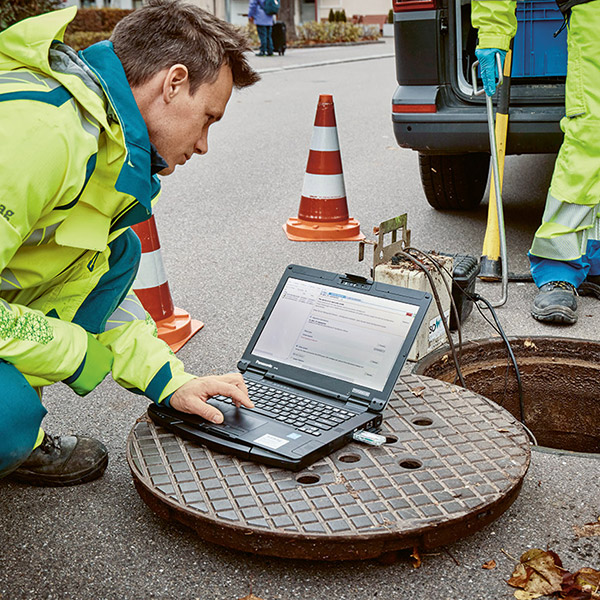ETHICS AND TECHNOLOGY
Self-driving cars – what’s the problem?
People have an open mind about self-driving cars. But there are ethical issues that remain unresolved.

Since June 2016, autonomous shuttles have transported almost 54,000 passengers across the public transport network in the town centre of Sion. | Image: Manuel Lopez/Keystone
If someone in a self-driving car were to have a serious accident, should the on-board computer be able to make life-or-death decisions in the moments before the crash happens? Or should the person behind the wheel have the final say? A research project at the Institute for Biomedical Ethics at the University of Basel is dealing with this question. A small qualitative study they have carried out has meanwhile revealed that the general population still knows relatively little about the topic.
The question arises, for example, as to whether this type of vehicle should be programmed to mimic instinctive human reactions in the event of an accident. And whether it is ethically defensible for the corresponding algorithms to take into account personal data, e.g., age, life expectancy and the state of health of the people involved.
The Basel ethicists conducted 16 interviews in which they presented various accident scenarios to their interviewees. They found there was a generally positive prevailing attitude towards self-driving cars. “There is a certain amount of trust in the technology”, says the first author Christophe Schneble. But some people want to retain the option of ultimately taking control of their computer-controlled car in an emergency – especially if they see an imminent danger with their own eyes. But they had varying degrees of knowledge about the technology found in such vehicles. In many interviews, self-driving vehicles were also referred to as “cars on rails”. And opinions differed between the younger and older interviewees as to whether these vehicles make the roads safer or not.
“Both humans and technology are prone to error”, says Schneble. “It would be good for politicians and industry to come together and consult with the general population about the ethical problems surrounding automated vehicles”. Especially before they start rolling through our streets in large numbers.




